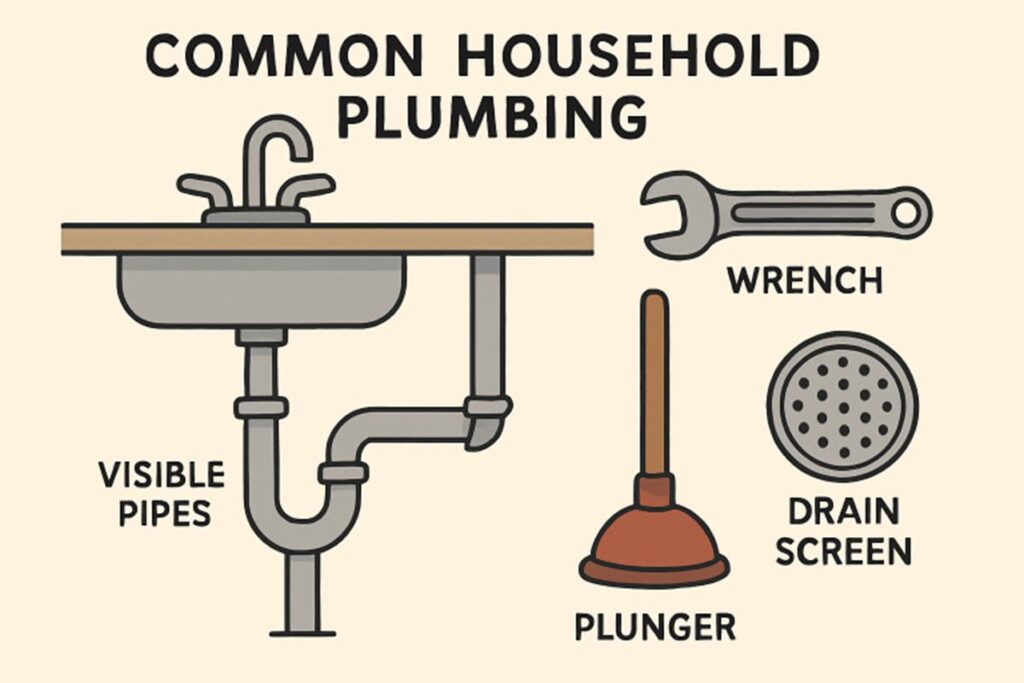Every homeowner relies on reliable plumbing to maintain a safe and comfortable home. Simple, regular maintenance can help you avoid inconvenient breakdowns and costly emergencies down the line. Ignoring minor plumbing problems can result in more significant issues, so taking proactive steps now saves time and money in the long run. If you’re uncertain or need assistance, consider reaching out to professional plumbing services for expert advice and repairs.
Building good habits when it comes to plumbing care doesn’t just prevent leaks and water damage—it can also extend the lifespan of your pipes and fixtures. With a thoughtful and informed approach, you’ll be prepared to handle minor plumbing issues and recognize when it’s time to call in the professionals.
Regularly Inspect for Leaks and Corrosion
Small leaks are among the most overlooked causes of water waste in homes, but regular checks can help you catch issues before they escalate. Inspect under sinks, around appliances, and all visible pipes for signs of moisture, drips, or unusual stains, as these indicate leaks or corrosion. Even tiny leaks, according to the EPA, can waste thousands of gallons of water annually and promote hazardous mold growth. Addressing these early helps you save on utility bills and prevents water damage.
Avoid Chemical Drain Cleaners
When faced with a slow drain, many reach for chemical drain cleaners. However, these products can damage pipes—especially if used frequently. Instead, use mechanical methods such as a plunger or a drain snake. Natural solutions, such as a combination of baking soda and vinegar, can also safely clear minor clogs. Not only does this help preserve your plumbing, but it also limits your environmental impact. According to Good Housekeeping, repeated use of strong chemicals can cause pipes to deteriorate over time.
Know the Location of Your Main Shutoff Valve
If a pipe unexpectedly bursts, knowing how to turn off your main water valve quickly can prevent extensive property damage. This valve is typically found where the main water line enters your home or near your water meter. Please become familiar with its location and consider labeling it for the benefit of guests or family members. Practicing turning off the valve ensures you can act swiftly during a crisis.
Install Drain Screens
Preventing clogs is much easier than fixing them. Drain screens are a simple, affordable solution to keep hair, soap scum, food particles, and other debris out of your pipes. Place these screens in sinks, showers, and bathtub drains, and clean them regularly for optimal results. This habit not only keeps water flowing freely but can help eliminate the need for frequent plunging or costly service calls.
Insulate Pipes During Winter
Exposed pipes in unheated spaces, such as basements, attics, and garages, are vulnerable to freezing during colder months. Pipe insulation sleeves or wrap-around tape can make a significant difference. According to Wirecutter’s guidance, keeping pipes above freezing temperatures can prevent costly burst pipes and water damage during winter storms.
Be Cautious with Garbage Disposal Use
Garbage disposals can be convenient, but they require careful use. Avoid feeding your disposal foods like bones, fibrous vegetables (e.g., celery), coffee grounds, fat, oil, pasta, or rice. These can easily cause blockages or damage the blades. Always run cold water while using the disposal, and keep it clean by occasionally grinding ice cubes or citrus peels. These practices will help extend the lifespan of your disposal system.
Learn How to Unclog a Toilet Properly
Toilet clogs are a common household issue. The best tool for the job is a flange plunger, which creates a proper seal and applies the right pressure to dislodge clogs. Never use chemical drain cleaners in toilets, as they can be harsh on plumbing and harmful to septic systems. If standard plunging doesn’t solve the blockage, a toilet auger—available at most hardware stores—can help break up stubborn clogs without damaging your pipes.
Schedule Annual Water Heater Maintenance
Your water heater works hard year-round. To ensure it stays efficient and free from problems, drain and flush the tank annually to remove sediment buildup. This simple step improves heating efficiency and extends the unit’s lifespan. Additionally, the anode rod inside should be checked and replaced every few years to prevent internal rusting. If your water heater isn’t performing as it should, a professional inspection can provide peace of mind.
Incorporating these straightforward tips into your routine helps keep plumbing systems running smoothly and prevents disruptive emergencies. Whether you’re a new homeowner or want to enhance your home care skills, proactive plumbing maintenance goes a long way. Remember: when in doubt, contacting certified plumbing services can protect your property and ensure the job is done right.



